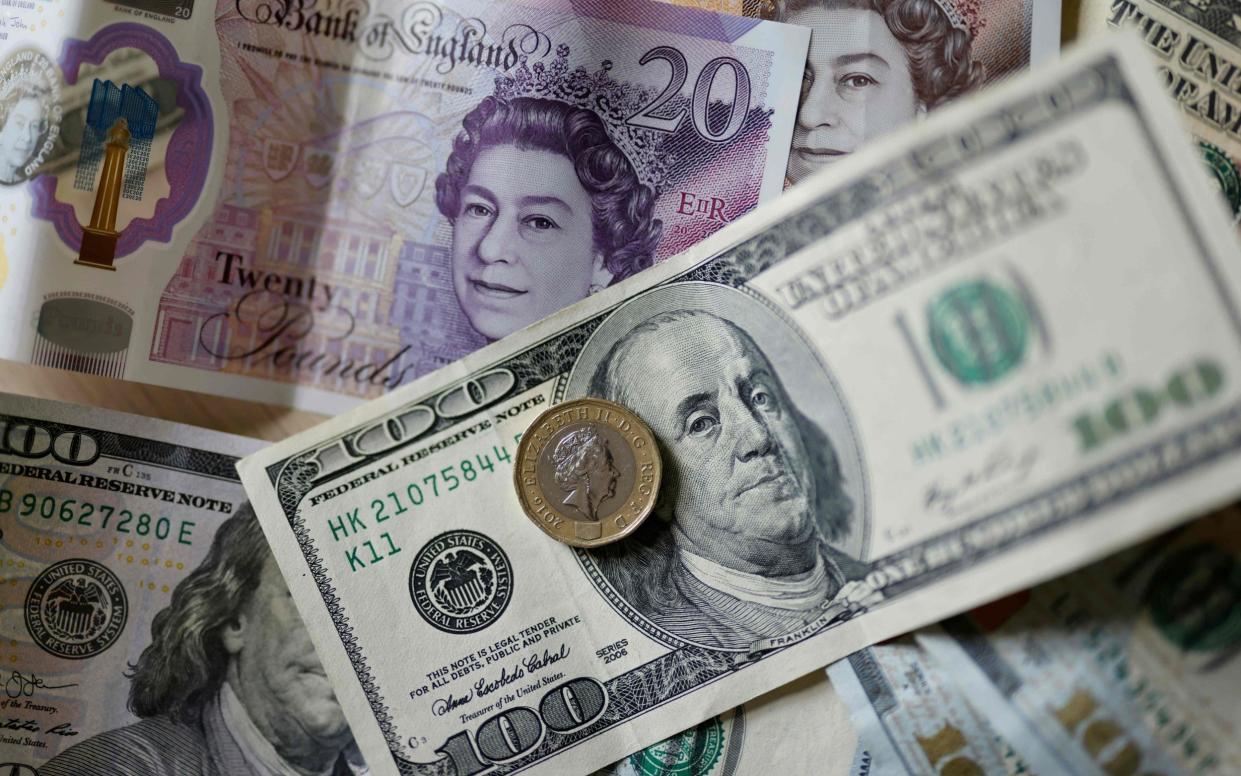What the weak pound means for your wallet

The pound sank to an all-time low against the American dollar overnight, following Chancellor Kwasi Kwarteng's “mini-Budget” last week.
Investors have become fearful that Prime Minister Liz Truss’s new administration is borrowing at unsustainable levels, pushing the pound to new lows. This has been compounded by strength in the US dollar, where investors are more optimistic.
What does it mean when the pound drops, and how will it affect your wallet?
Buying American goods
A weak pound against the dollar means it will be more expensive to buy American goods.
Earlier this month Apple raised the launch price of its new iPhone range in Britain by up to £150, thanks in part to a weak pound. The latest iPhone 14 Pro has a starting price of £1,099. That is a 16pc jump from £949 for its iPhone 13 Pro, its main launch last year.

Further price rises in the UK could occur for future launches, should the dollar maintain or increase its strength.
Prices that companies have to pay for essential ingredients will also climb, pushing higher costs on to consumers. Paul Davies, chief executive officer at Carlsberg Marston's Brewing Company, suggested the fall of the pound may cause a rise in beer prices.
He told BBC Radio 4's Today programme that the drop was "worrying" for the British beer industry, which imports beer and hops from overseas. He said the price of craft beer, which relies heavily on US hops, could be particularly affected.
Susannah Streeter, of the broker Hargreaves Lansdown, said the weak pound could mean further pain in store for drivers.
“Sterling’s slide makes imports more expensive so the falls we have seen in oil prices over recent weeks won’t be fully felt at the petrol pumps,” she said.
Oil and gas is priced in dollars on the wholesale market, which means that petrol costs could also rise for British drivers. The AA has warned that drivers are already paying an extra £5 for a full tank of petrol due to weak sterling.
Going on holiday
If you are going on holiday to the United States, buying local currency will be more expensive.
It is important to compare foreign exchange rates from different providers. High street banks are a safe and reliable option, but do not always offer the best deals. They can also charge transfer fees of up to £30 per transaction, which can quickly add up.
Specialist currency services can offer more competitive rates, with lower or no transaction fees.
It could be less expensive to travel to countries in the eurozone, as the local currency on the continent has also fallen against the American dollar. The pound has held up relatively better against the euro versus the dollar, down 7pc versus 21pc in the year to date.
British bonds sink
British bonds – also known as “gilts” – have been heavily sold off in recent days. Bonds are sold when the market is worried about the state of a national economy or the Government’s ability to pay off its debt, or both.
When bond prices fall, their yields climb. This is because investors demand a higher yield rate in exchange for holding riskier debt. The yield on a 10-year gilt reached 3.8pc on Monday morning.
A fall in the value of bonds could hurt savers approaching retirement, especially investors who are caught in a process called “lifestyling”. This is when workers near their target retirement date and are automatically shifted away from stocks and towards long-dated government bonds. Many investors who have switched to this strategy by default could see the value of their pot decline.
Bond moves could also have an effect on the mortgage market, as gilts impact “swap rates”, which lenders then use to price mortgages. Experts have already warned that as many as one in five mortgaged homeowners could fail to meet affordability checks when they came to remortgage.

 Yahoo Movies
Yahoo Movies 
